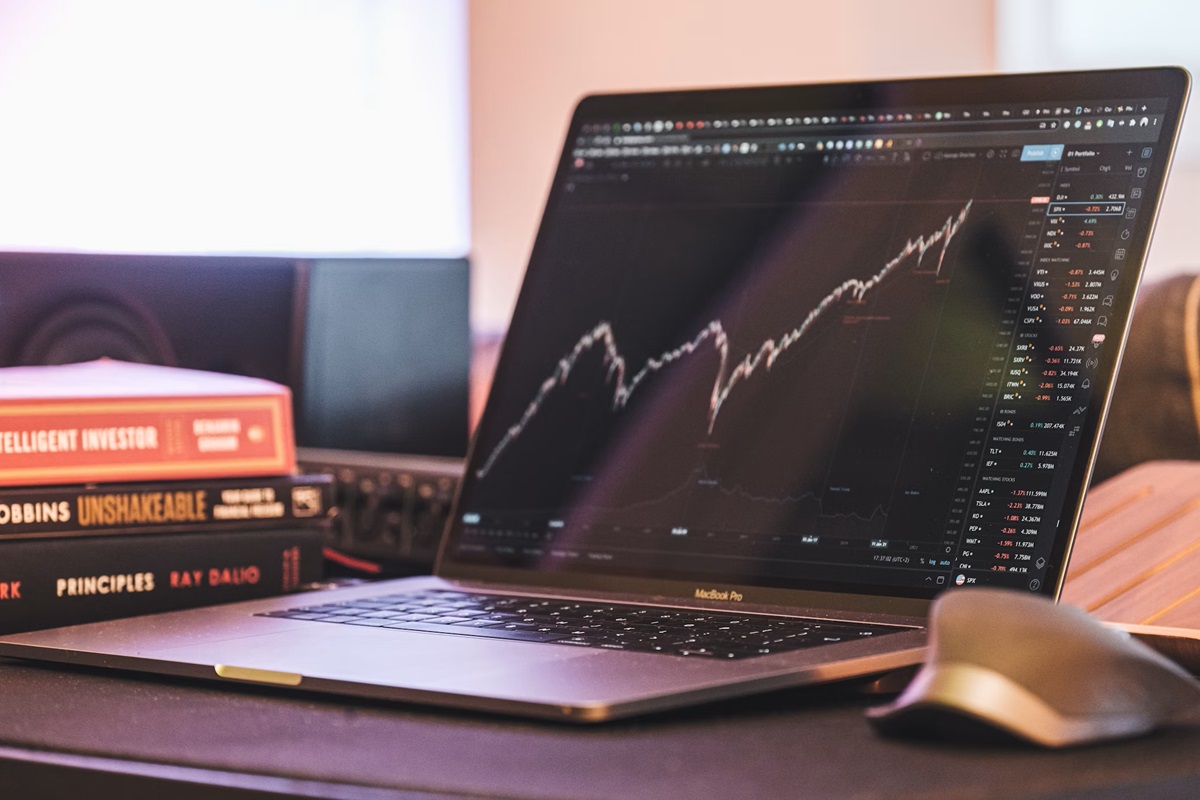
Anyone who invested in Equitrans Midstream ETRN—one of the largest natural gas pipeline companies in the U.S.—at this time last year has enjoyed an impressive total return of nearly 80% since. And it’s not too late to join in; the stock is still priced below Morningstar’s fair value estimate for it.
The good news for investors is that Equitrans isn’t the only undervalued U.S. stock that has posted big gains.
Finding Cheap, Top-Performing Stocks
We screened the U.S. stocks covered by Morningstar analysts for those with the best performances over the last 12 months. That list was then filtered for stocks with Morningstar Ratings of 4 or 5 stars, meaning they’re trading at prices below their fair value estimates. We then picked six names:
Moat Ratings for the Top-Performing Undervalued Stocks
Of these six companies, Morningstar analysts deem three to have economic moats, meaning they have durable competitive advantages. Companies with narrow moats are expected to maintain their advantages for at least 10 years, while those with wide moats are anticipated to keep their advantages for more than 20 years. Undervalued moat stocks have a long track record of outperformance. Morningstar analysts believe that for optimal long-term results, investors are best served by considering companies’ moats alongside their valuations.
Here’s a closer look at the six stocks, along with Morningstar analysts’ takes on their outlook.
Equitrans Midstream
- Fair Value Estimate: US$15.00
- Morningstar Rating: 4 star
- Morningstar Economic Moat Rating: Narrow
- Morningstar Uncertainty Rating: High
- Forward Dividend Yield: 5.6%
“Equitrans is engaged in discussions about strategic transactions with third parties. We think an acquisition by Williams WMB or Energy Transfer ET would likely make the most strategic and financial sense, considering the asset network overlap. We continue to see Equitrans as undervalued and expect to maintain our US$15 fair value estimate and narrow moat rating, so a deal could provide a quick pathway toward achieving our valuation target. The timing is good for a third party, with the Mountain Valley pipeline on track to enter service by or on May 31, as it is essentially derisked. While it is unclear what stage the talks are at, we do think an acquisition makes sense for both parties. Equitrans expects to own 49% of the pipeline via a subsidiary and be the operator; its equity stake has increased recently as it has funded the latest overruns.”
Lyft
- Fair Value Estimate: US$25.00
- Morningstar Rating: 4 star
- Morningstar Economic Moat Rating: Narrow
- Morningstar Uncertainty Rating: Very High
- Forward Dividend Yield: 0%
“Lyft is well on its way to becoming a one-stop shop for on-demand transportation. It has tapped into the bike- and scooter-sharing markets, which we think will be worth over US$12 billion by 2029, growing 7% annually. Lyft also appears to be aggressively pursuing the autonomous vehicle route, as it understands that self-driving cars may help the firm expand its margins. Without drivers, it could recognize a bigger chunk of the fare as net revenue. In contrast with Uber UBER, Lyft is not focused on food transportation or logistics. We like its relatively narrower focus on consumer transportation, but note that Uber has an edge thanks to its earlier start, higher market share, and stronger network effect. In addition, unlike Uber, Lyft’s lack of revenue diversification won’t soften the impact of exogenous shocks like covid-19.
“We believe Lyft may need to acquire riders more aggressively via lower pricing. However, we don’t think this is a death knell for future profitability. Compared with Uber, Lyft has fewer riders on its platform and fewer rides taken because it is focusing mainly on the U.S. market. However, it may be able to avoid some bumps on the road toward GAAP profitability, including the international regulatory-related ones that may require additional costs.”
Crispr Therapeutics
- Fair Value Estimate: US$119.00
- Morningstar Rating: 4 star
- Morningstar Economic Moat Rating: None
- Morningstar Uncertainty Rating: Very High
- Forward Dividend Yield: 0%
“We anticipate 2024 will be a pivotal year as Crispr rolls out commercialization efforts for Casgevy, which has received approval in the U.S., U.K., Saudi Arabia, and Bahrain. We think Casgevy’s high selling price and the significant unmet medical need for treating sickle cell disease and transfusion-dependent beta-thalassemia will help it become a blockbuster drug, generating over US$1 billion in total sales annually by 2025. Vertex will receive 60% and Crispr will receive 40% of Casgevy’s profits under their agreement.”
Wayfair
- Fair Value Estimate: US$97.00
- Morningstar Rating: 4 star
- Morningstar Economic Moat Rating: None
- Morningstar Uncertainty Rating: Very High
- Forward Dividend Yield: 0%
“Despite operating in an industry plagued by high interest rates and a stagnant housing turnover, Wayfair continues to deliver consistent baseline sales and improving profitability. While seasonally adjusted furniture and home furnishing sales declined an average of 6% in Wayfair’s fourth quarter, the firm was able to chalk up flat sales (US$3.1 billion), indicating that it is taking share. Moreover, even without sales growth, Wayfair’s expense profile continues to improve. Efforts to reduce the workforce since mid-2022 helped lower the fourth quarter’s operations, technology, and administrative ratio by roughly 200 basis points, to 19.2% of sales. But the ability to manipulate pricing to protect gross margin also helped Wayfair win, resulting in 150 basis points of upside. As a result, Wayfair printed its third consecutive positive quarterly EBITDA margin, evidencing its ability to generate profitability even in weak macroeconomic conditions.”
Carnival
- Fair Value Estimate: US$27.50
- Morningstar Rating: 5 star
- Morningstar Economic Moat Rating: Narrow
- Morningstar Uncertainty Rating: High
- Forward Dividend Yield: 0%
“Carnival remains the largest company in the cruise industry, with nine global brands and 92 ships at the end of fiscal 2023. The global cruise market has historically been underpenetrated, offering cruise companies a long-term demand opportunity. Additionally, the repositioning and deployment of ships to faster-growing and underrepresented regions like Asia-Pacific helped balance the supply in high-capacity regions like the Caribbean and Mediterranean before the pandemic. The firm can utilize this strategy again to help optimize forward pricing. Since the European demand profile has recently returned to normalized levels, we believe there is plenty of support for improving economic performance at Carnival.”
Macerich
- Fair Value Estimate: US$25.00
- Morningstar Rating: 4 star
- Morningstar Economic Moat Rating: None
- Morningstar Uncertainty Rating: High
- Forward Dividend Yield: 4.07%
“Macerich reported fourth-quarter results that were relatively in line with our expectations, giving us confidence in our US$25 fair value estimate. Total occupancy improved 10 basis points sequentially to 93.5%, above our 93.1% estimate. Re-leasing spreads were a very strong 17.2% in the fourth quarter, well above our estimate of new rent being 5.5% higher than expiring rent terms. As a result, average base rent increased by 2.6% in the fourth quarter, which is a relatively strong result for the company, and same-store net operating income grew by 3.0%. Macerich reported diluted funds from operation of US$0.56 per share for the quarter, a penny better than our US$0.55 estimate and three cents better than the US$0.53 figure the company reported in the fourth quarter of 2022.
“Near-term debt maturities have been one of the market’s biggest concerns for Macerich, and the company addressed much of that in December and January. Over those two months, Macerich issued US$534 million in new debt at an average interest rate of 6.5%, sold its share of One Westside for US$175 million, and then used the proceeds to retire approximately US$670 million of debt at the company’s share with a weighted average interest rate of about 5.5%. Following this, Macerich only has US$396 million of debt at the company’s share retiring in 2024. While any new issuance is likely to be at a higher rate than the expiring interest rate, we believe management should not have any issue replacing the near-term debt maturities with new issuances as they come due.”







:quality(80)/cloudfront-us-east-1.images.arcpublishing.com/morningstar/7WLK3HWLZBFR7NKI45PXWUD6OI.jpg)
:quality(80)/cloudfront-us-east-1.images.arcpublishing.com/morningstar/MCOHMFJ2MVEVPAJNB73ASRA4EA.jpg)














